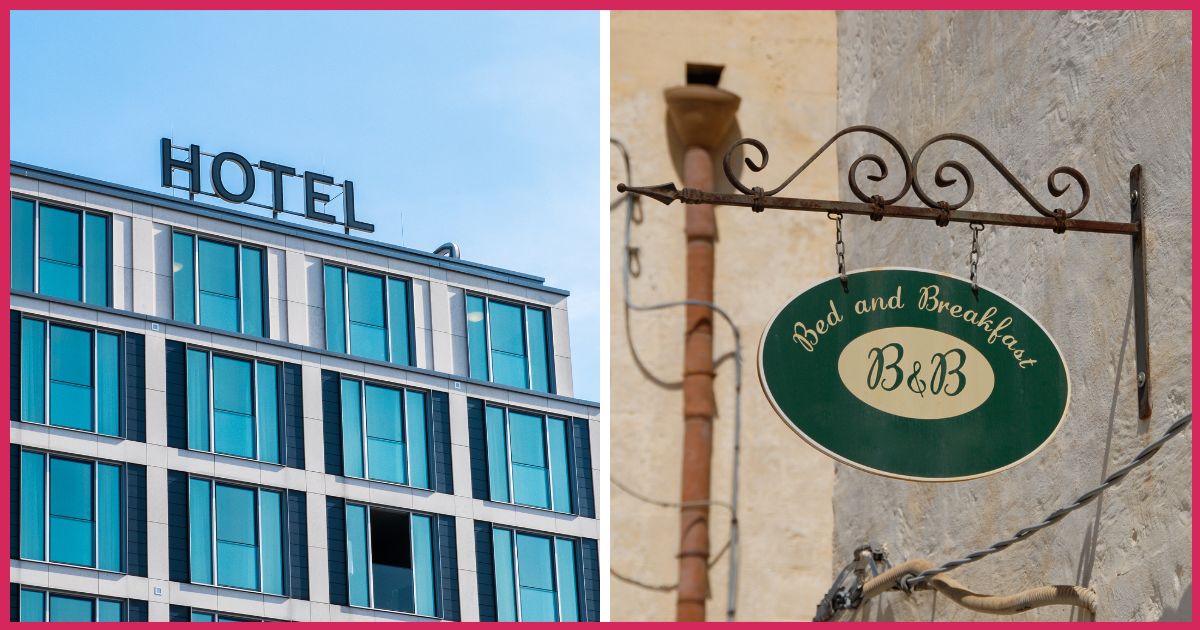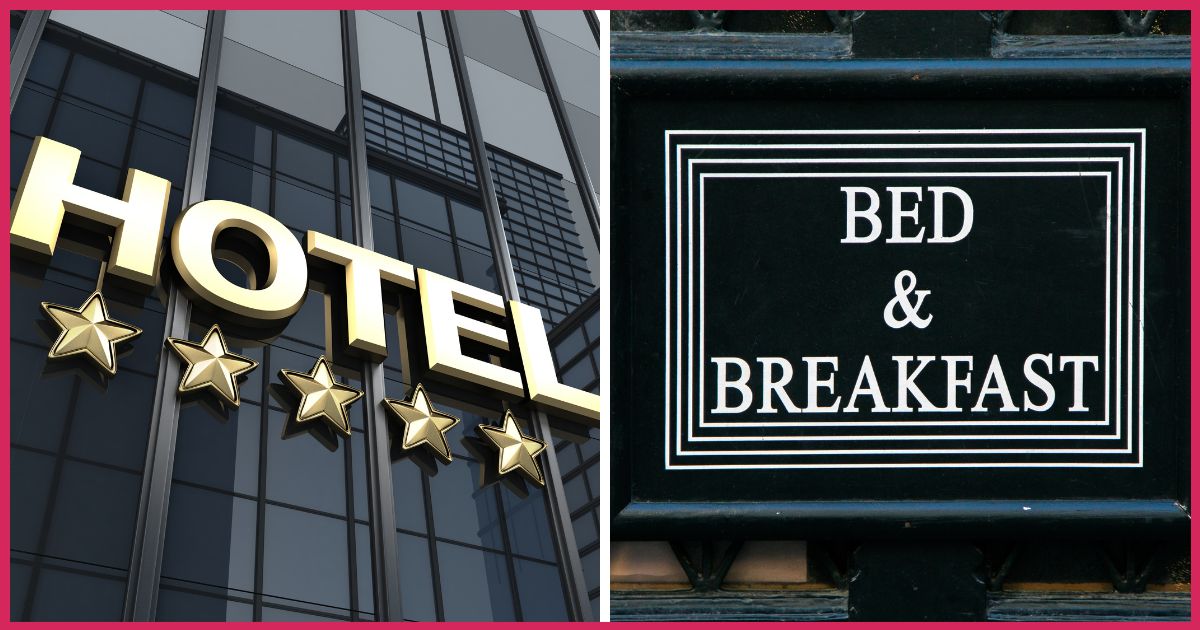Hotel or Bed and Breakfast: Selecting the Best Fit for Your Trip
Choosing the perfect place to stay, whether it's a hotel or a bed and breakfast, can significantly impact your travel experience. While hotels provide a range of amenities and services that cater to the needs of various travellers, bed and breakfasts offer a more intimate and personalised stay. Understanding these differences will help travellers make a more informed decision that aligns with their preferences.
Hotels often boast convenient locations, particularly in metropolitan areas, making them ideal for business travellers or those seeking easy access to attractions. They typically offer facilities like pools, gyms, and restaurants, providing a sense of luxury and convenience. On the other hand, bed and breakfasts focus on creating a homely atmosphere, often located in charming neighbourhoods or scenic rural areas.
A bed and breakfast often appeals to those who value personal touches, as hosts tend to offer local insights and bespoke recommendations. Staying at one can feel like being a guest in someone's home, with breakfast made from local ingredients adding to the experience. Meanwhile, guests opting for hotels can enjoy consistent services and a broad range of amenities that cater to both business and leisure needs.
Types of Accommodation
Different types of accommodation offer varied experiences and levels of comfort for travellers. Key aspects include classifications based on amenities and services for hotels, and unique characteristics for bed and breakfasts.

Hotel Classification
Hotels are typically classified by their star ratings, ranging from one to five stars.
Each star level offers distinct standards of quality. One-star hotels might provide only the basic necessities, while five-star hotels include luxurious amenities such as gourmet restaurants, spas, and personalised concierge service.
Mid-range hotels, often three stars, balance comfort and cost-effectiveness. They usually include standard facilities such as Wi-Fi, room service, and fitness rooms.
In addition to star ratings, hotels can also be classified as boutique, budget, or extended stay, each catering to different needs and preferences. Boutique hotels focus on unique design and personal service, often located in fashionable areas.
Budget hotels prioritise cost, offering essential services without the frills. Extended-stay hotels target guests needing accommodation for longer periods, providing facilities like kitchenettes.
Bed and Breakfast Characteristics
Bed and breakfasts (B&Bs) offer a very different experience from hotels. Typically, they are smaller establishments, often family-owned, providing a homely atmosphere.
Guests can expect a more personalised service, with the owner often interacting directly with them. One significant feature is the inclusion of a homemade or locally sourced breakfast, usually served in a communal dining area.
B&Bs are usually located in residential areas or quaint countryside settings. Rooms are often individually decorated, adding to their charm. Some B&Bs may offer additional amenities like communal lounges, gardens, or parking.
While lacking the extensive services of a hotel, they appeal to those seeking a more intimate and personalised stay.
Considerations for Choosing Accommodation
Choosing the right accommodation involves evaluating several factors that can significantly impact the overall experience. Key considerations include the property's location and accessibility, the amenities and services offered, and how costs compare across different options.

Location and Accessibility
Location plays a crucial role in selecting accommodation. Consider proximity to key attractions, business centres, or transport hubs. Easy access to public transport is essential for tourists and business travellers alike. A central location can save time and transportation costs.
Evaluating the safety of the area is important. Check local crime rates and read reviews from past guests. Parking availability also matters if travelling by car. Consideration of these factors ensures convenience and peace of mind.
Amenities and Services
The amenities and services provided can greatly influence the accommodation choice. Common necessities include Wi-Fi, air conditioning, and breakfast options. Business travellers might require conference facilities or business centres. Families may look for child-friendly services such as babysitting or play areas.
Luxury seekers often prioritise spa services, pools, or gourmet dining. Evaluate what the stay intends to offer. Are there transport services, such as shuttles? The range and quality of amenities can add significant value to the stay.
Cost Comparison
Evaluating accommodation costs requires more than comparing room rates. Factor in additional charges like resort fees, parking, or meals. Consider whether booking directly offers better deals or benefits compared to third-party sites. Discounts for extended stays or early bookings might lower overall expenses.
A price comparison should also consider the value offered. A slightly higher rate might be justified by superior location or extensive amenities. Establish a budget and assess which option offers the best balance between cost and features.
Operational Aspects
Running a successful hotel or bed and breakfast requires attention to several crucial operational elements. Efficient staffing and effective management must be balanced with comprehensive safety and security measures.

Staffing and Management
Proper staffing ensures the smooth operation of a hotel or bed and breakfast. Recruitment focuses on hiring skilled personnel for various roles such as housekeeping, front desk, and kitchen positions. Training programmes should emphasise customer service and operational efficiency.
It's essential for management to foster a positive work environment, encouraging teamwork and communication. Regular performance reviews and feedback can help improve staff performance.
Managing schedules effectively ensures coverage during peak guest times while controlling labour costs. In smaller establishments, owners may take on multiple roles, adding complexity to management responsibilities.
Safety and Security Measures
Safety and security are paramount in maintaining guest trust and satisfaction. Security measures should include surveillance systems, secure key card access, and well-lit premises.
Staff should be trained in emergency procedures, including first aid and fire safety protocols. Regular maintenance checks ensure there are no hazards like faulty electrical systems. It's important to have a clear evacuation plan and communicate it to both staff and guests.
Safety measures extend to ensuring that food and water are handled in compliance with health regulations. A clean and secure environment is fundamental to a successful guest experience.
Cultural and Ethical Implications
Hotels and bed and breakfasts have significant responsibilities in balancing cultural sensitivity and ethical considerations. Sustainability practices and community impact are central to these efforts.
Sustainability Practices
Sustainability is crucial in today’s hospitality industry. Hotels and B&Bs are increasingly adopting eco-friendly initiatives such as solar energy systems, water conservation methods, and waste management practices. Many establishments provide biodegradable toiletries and reduce single-use plastics to minimise environmental harm.
Energy-efficient appliances and renewable resources are also becoming standard. By implementing these measures, not only do they lessen their carbon footprint, but they also appeal to environmentally-conscious travellers.
Guests often look for these commitments as part of their decision-making process when choosing accommodation, making sustainability not just an ethical choice but a competitive advantage.
Impact on Local Community
Accommodation providers have a large impact on local communities. They can play a role in boosting the local economy by employing residents, sourcing local produce, and partnering with local businesses. This approach fosters community relations and supports the economic well-being of the area.
However, there is a risk of cultural disruption if not managed carefully. Cultural sensitivity is key; businesses must respect local customs and traditions, ensuring that their presence enhances rather than detracts from the community's way of life. Engagement in community activities and support for local initiatives can further strengthen ties and ensure a positive impact.




